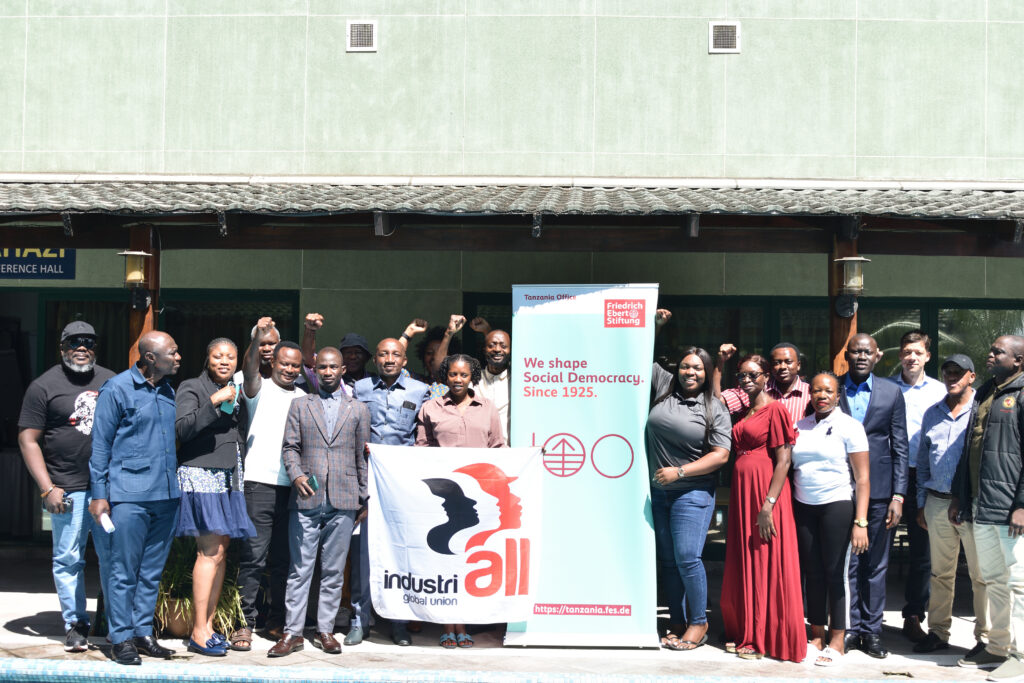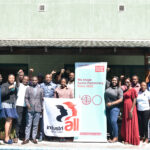19 September, 2025In a bid to strengthen collective bargaining and safeguard workers’ rights, trade union affiliates of IndustriALL Global Union from Botswana, Côte d’Ivoire, Democratic Republic of Congo, Ghana, Liberia, Namibia, Tanzania, South Africa, Zambia and Zimbabwe convened in Dar es Salaam 10-12 September. The workshop focused on revitalizing trade union networks within multinational mining corporations (MNCs), including Glencore, Barrick Gold, AngloGold Ashanti and Valterra Platinum (formerly under Anglo American).
The workshop underscored the need for MNC trade union networks to adopt unified objectives, structured plans and enhanced communication strategies, leveraging social media and artificial intelligence tools to amplify organizing efforts. Key priorities included upholding freedom of association, collective bargaining, occupational health and safety, and living wages, while embedding human rights due diligence frameworks. The Initiative for Responsible Mining Assurance (IRMA) was cited as a benchmark for responsible mining practices.
A particular emphasis was placed on gender equity, with unions advocating for measures to combat gender-based violence and harassment faced by women miners. Proposals included ensuring access to sanitary products and fostering greater female participation to dismantle discriminatory practices.
Environmental accountability also featured prominently, with delegates citing the Kafue River pollution incident in Zambia where acidic, heavy metal-laden waste from a burst tailing at Sino-Metals Leach’s copper mine contaminated a vital water source for millions as a stark reminder of the need for strict governmental oversight and adherence to global environmental standards.
Theodore Kamwimbi, a researcher from the University of Western Cape, presented findings from IndustriALL report, Mapping Multinational Corporations in Mining in Sub-Saharan Africa. His recommendations included extending union networks to smaller mining firms, expanding collective bargaining to contract workers, and addressing wage disparities, particularly in the DRC, where expatriate workers often earn more than locals. Kamwimbi also called for action against child labour in artisanal and small-scale mining, alongside efforts to document and support women miners in adapting to technological advancements and automation.
Christian Denzin, Friedrich Ebert Stiftung Tanzania resident director described the workshop as a critical platform for regional unions to exchange strategies and promote sustainable practices within multinational frameworks.
Drawing on successful precedents like the ArcelorMittal, TK Elevator, and Inditex networks, Patrick Correa, IndustriALL director for mechanical engineering and base metals, emphasized the importance of engaging MNC management to ensure the sustainability of global networks. He pointed to ArcelorMittal’s global health and safety agreement as a model for collaboration.
Glen Mpufane, IndustriALL director for mining and diamonds, stressed the necessity of international solidarity to counter the influence of well-resourced global mining corporations:
“Unions must mobilize workers and leverage MNC networks to defend rights effectively,”
citing campaigns by the Anglo-American and Glencore networks as examples of impactful engagement, including protests on worker rights violations at Glencore.
The workshop concluded with the establishment of global networks for Barrick Gold and AngloGold Ashanti workers, to be coordinated by the Tanzania Mines, Energy, Construction, and Allied Workers Union (TAMICO) and the Ghana Mine Workers Union (GMWU), respectively.
These networks aim to complement national union activities, forming part of a broader IndustriALL project to build resilient trade union power within multinational mining companies.




